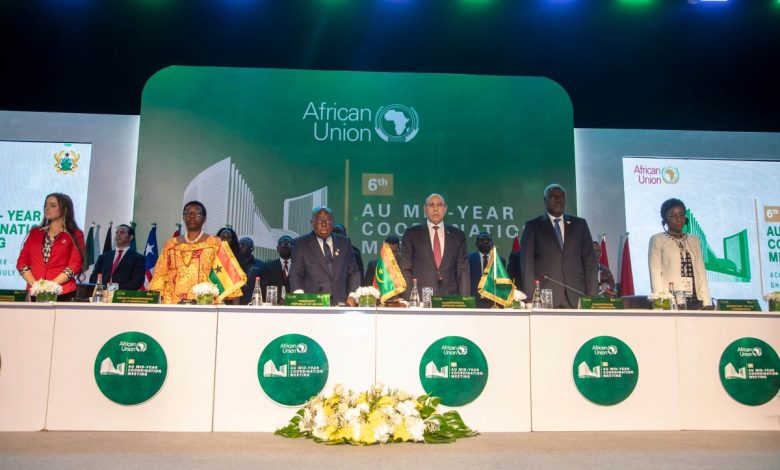Africa Explores Consolidated Financial Institutions to Power Projects

Africa is exploring innovative financing, including the establishment of African Union Financial Institutions, that is the African Central Bank, the African Investment Bank, and the African Monetary Fund, and the Pan-African Stock Exchange, to support the Second Decade of Agenda 2063
Speaking at the 6th mid-year coordination meeting in Accra, Ghana’s President Nana Akufo-Addo noted that the current Africa’s financial landscape is scattered with numerous institutions and initiatives operating in silos, leading to inefficiencies, duplication of efforts and suboptimal utilisation of resources.Central to the realisation of this vision is the establishment of the African Central Bank, the African Investment Bank, and the African Monetary Fund.Akufo-Addo notes that the creation of the institutions is vital to achieving the financial stability and economic integration necessary for the successful implementation of the continent’s Agenda 2063.The African Central Bank will harmonize monetary policies and ensure currency stability across the continent, mitigating the risks associated with exchange rate volatility and creating a predictable economic environment that fosters investor confidence and facilitates intra-African trade.
A stable and unified monetary policy will reduce transaction costs and increase the efficiency of Africa’s financial systems. Concurrently, the African Investment Bank will be instrumental in mobilizing and allocating resources for large scale developmental projects, providing the financial backbone for key infrastructure and development initiatives, and accelerating progress towards the high aspirations of Agenda 2063.
It will serve as a catalyst for investments in infrastructure, technology, and human capital, which are fundamental to transforming the socio-economic landscape of Africa.
Additionally, the African Monetary Fund will provide financial assistance to Member States facing balance-of-payments issues and economic shocks, boosting monetary cooperation and stability among African nations.
By reducing dependency on external financial institutions and promoting sound fiscal and monetary policies, the African Monetary Fund will support macroeconomic stability and entrench financial sovereignty across the continent.
“By consolidating our development funding instruments, we can create a more cohesive and effective financial framework that ensures resources are allocated where they are most needed. This consolidation will not only streamline our efforts but will also improve our capacity to mobilise domestic and external resources efficiently. It will enable us to scale up our investments in key areas such as education, infrastructure, healthcare, and technology, driving comprehensive and sustainable development across the continent,” said Akufo-Addo.
“Another crucial proposal I would like to highlight is the initiative, made by Ghana at the last AU Summit, for African countries to deposit 30 per cent of their sovereign reserves into African multinational banks, instead of allowing these resources to lie passively in foreign banks, often at negative interest rates. This initiative aims to heighten our self-reliance and reinforce the capacity of African financial institutions.”
See Also:
Commonwealth Finance Ministers Call for Systemic Reform of Global Financial Architecture
ADVERTISEMENT



